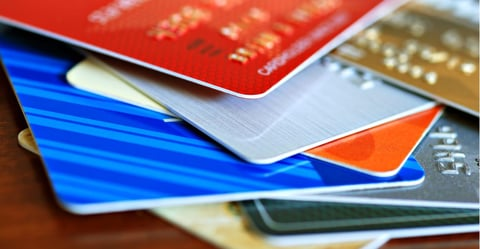How Long Should You Keep Credit Card Statements: Do You Know?
Nov 10, 2022 By Triston Martin
Introduction
Every month you have a credit card, you will receive a billing statement summarising your purchases. Your credit card statement details the assets you've made, any associated fees, and the payments you've made. Credit card statements can quickly accumulate if you have several due each month. It would help if you didn't throw away any ideas you might need soon, but you also don't want to hoard mail forever. What is the recommended time frame for keeping credit card statements?
Do You Need To Keep Credit Card Statements at All?
You can usually delete your credit card statements after a few months if you have an online credit card account. Credit card statements from the past few years are typically available online. Credit card statements can often be retrieved from the past or downloaded for easy future access. But don't assume that your credit card company will keep your past comments. The ones you need should probably be kept in a convenient location.

When You Need the Records
Sixty-three percent of American adults now do at least some of their banking online, either through a mobile app, desktop, or laptop computer. Despite this, over half of all Americans still receive their monthly bank and credit card statements in the mail. Older consumers are much more likely to prefer paper documents, which is no surprise. Electronic purchases lack physical documentation, which may be satisfying to some. Whatever method you use to keep track of your financial documents, whether it's a physical filing system or an electronic database, there will come a time when you need to refer back to older statements.
Why You Should Keep the Statements
It is essential to quickly access a history of your most recent financial transactions, such as purchases, bill payments, and payroll deposits, for several reasons, not the least of which is to use it as evidence of income in the event of a dispute. When checking your bank account, you should always watch for suspicious activity that could indicate identity theft or debit card fraud. The statements are used to prove wrongdoing and seek compensation for losses.
For Tax Purposes
When filing your taxes, you may need to refer to your financial records to verify items like wages and business expenses. Keep records of any large purchases or payments made and any bank statements verifying such transactions. Insurance claims and warranty claims often necessitate proof of purchase. After comparing your ATM receipts to your bank records, you can discard the originals by shredding them. After reaching the monthly credit card statements to the deposit and withdrawal slips, the latter can be discarded.
Bank Statements: Electronic Vs Paper
If you bank online, you can access your monthly bank statements online for the past five years through the bank's mobile app or website. These notices can usually be printed out. It is common practice to provide users with downloadable summaries of transaction data. Possible access to several years' worth of paper bank statements. Since this cannot be done at the branch level, some banks charge to search and printing fees for this service.
In the back, they process the older statements. Paper copies of financial documents should be stored in a secure, fireproof safe. Electronic messages should be stored in a secure location that requires a login and password. Protect sensitive data stored digitally with a password. Paper copies of statements should be kept in a safe, easily accessible location that is also fireproof.
Shredding Documents
It's tempting to put off organising your records in favour of just keeping them indefinitely. However, this is a bad idea mainly because they could fall into the hands of identity thieves.
How to Shred Your Documents

Make sure to shred your bank statements before throwing them away. Identity thieves can reconstruct your information even if you rip it in half. These days, you can buy a small, portable, and inexpensive shredder. A professional shredding service can be contracted if there is excessive paper to destroy. Some financial institutions will shred your statements at no cost upon request.
Conclusion
When disposing of old credit card statements, exercise caution due to the possibility of identity theft. Tossing them in the trash leaves too much of your personal information vulnerable; you should destroy them instead. Credit card statements should be shredded when they are no longer needed. By shredding your bank statements before throwing them away, you can protect yourself from identity theft and unauthorised charges to your account.

Triston Martin Aug 30, 2022
Quantitative Analysis of Hedge Funds
90665

Susan Kelly Aug 25, 2022
Different Features of Tier 1 Capital Ratio
73287

Triston Martin Oct 13, 2022
Learn how to make money by investing in Stocks
76258

Susan Kelly Jun 09, 2023
Best Online Outlet Stores That Save You Money in 2023
7311

Susan Kelly Aug 07, 2022
Homeowners Insurance For Broken Pipes
484

Susan Kelly Jun 03, 2023
What Is a 1099 Form: An Overview
13328

Susan Kelly Apr 27, 2023
Best Place to Buy Used Furniture Estate Sales
43493

Susan Kelly Oct 14, 2022
The 5 Essentials of an Estate Plan
37960